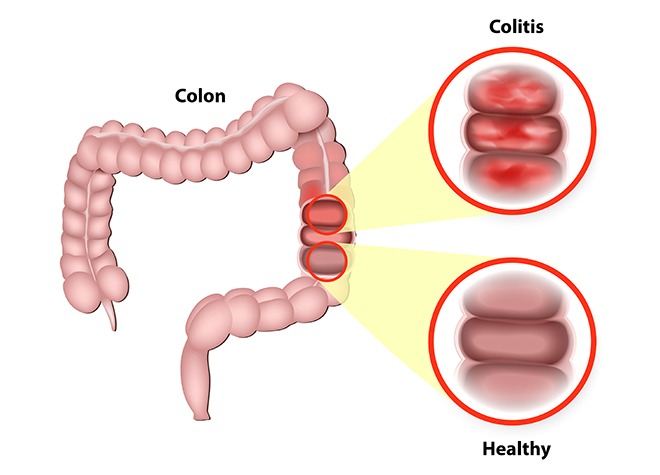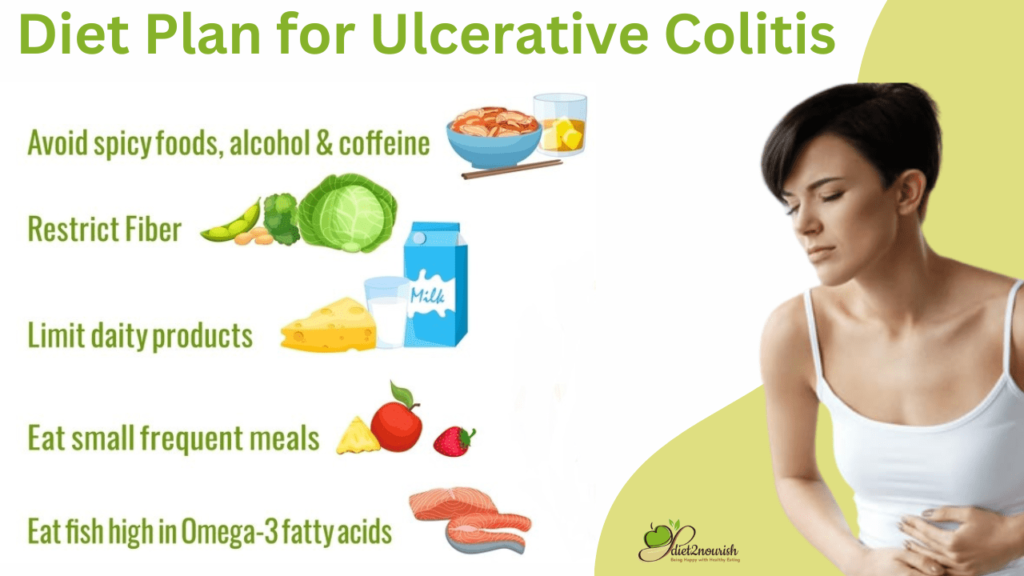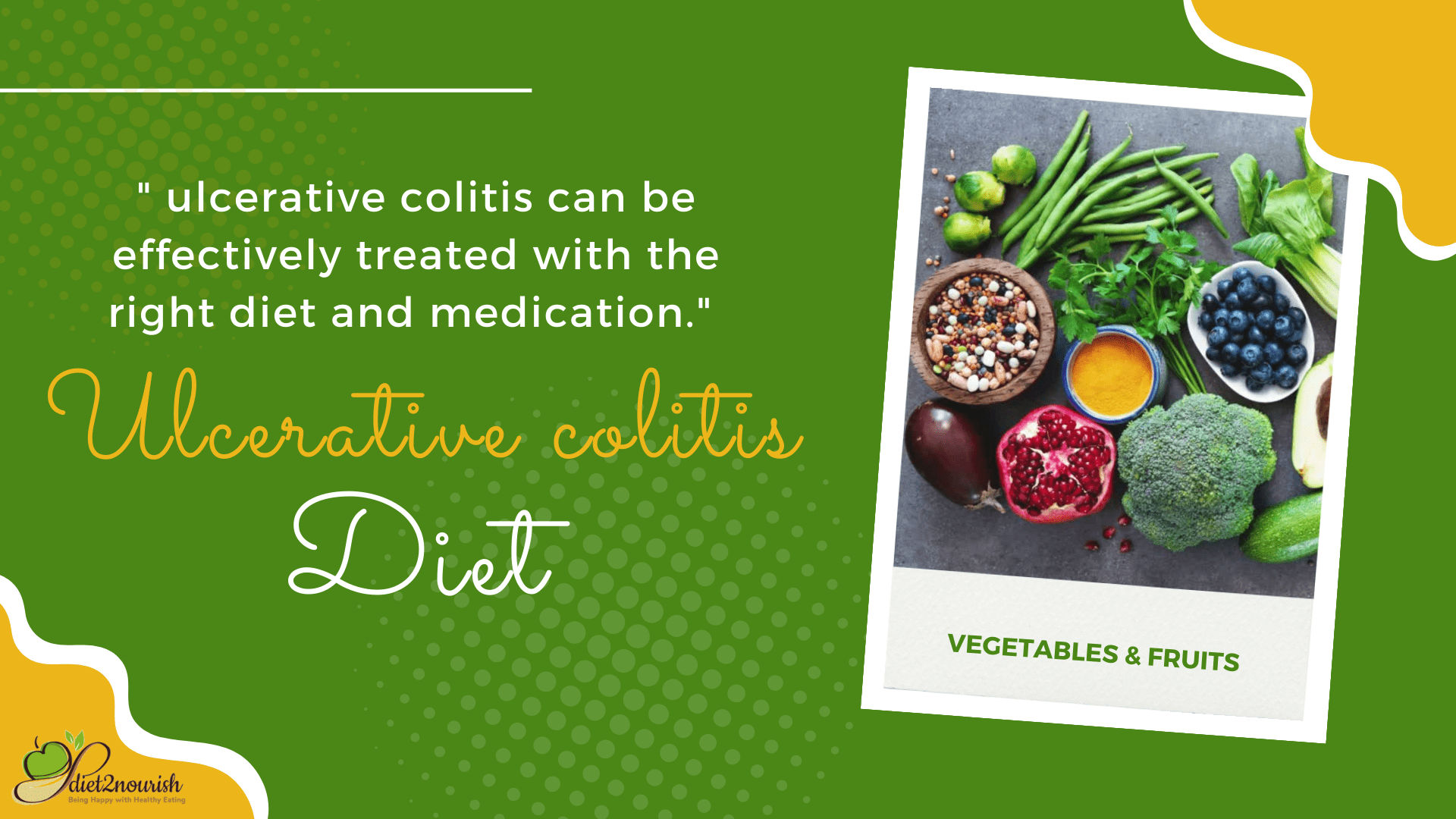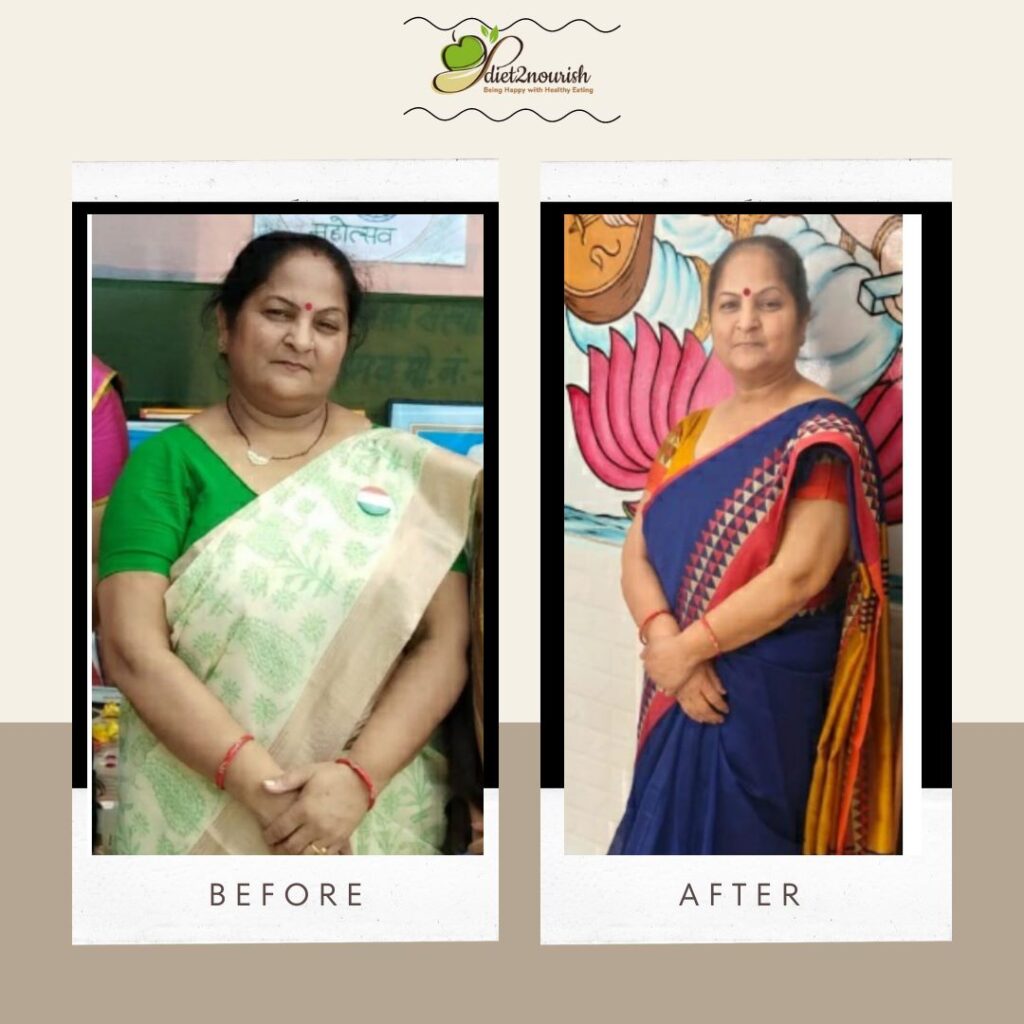Diet Plan for Ulcerative Colitis
Diet Plan for Ulcerative Colitis – Ulcerative Colitis is a health condition that causes sores and inflammations in the inner lining of the rectum and colon, causing ulcers. Diet plan for ulcerative colitis, Anyone of us can before the age of 30 be affected by the condition, showing up some of the most common symptoms like abdominal cramps and pains, blood in the stool, and diarrhea. If your condition is severe, you may also face frequent diarrhea, loss of appetite, and fever. Weight loss and consistent weakness.
Ulcerative Colitis is mostly a chronic health condition, with repeated flare-ups and remissions. In most cases, people suffering from ulcerative colitis have mild symptoms, but the conditions can rapidly deteriorate, resulting in serious complications.
But all said and done, ulcerative colitis can be effectively treated with the right diet and medication. It is believed that medication is just a segment of the overall treatment, a Diet chart for Ulcerative Colitis, has a huge role to play. Even some healthcare professionals advocate that ‘diet’ is the most important factor in the whole treatment process of the condition.
Diet chart for Ulcerative Colitis
It is said that whether you take medicine or not, a proper Diet chart for Ulcerative Colitis is critical in helping you eliminate certain foods that may cause flare-ups, and help you maintain adequate nutrition. It is a diet, that lets you take control of your disease and regain back power.
What is an ulcerative colitis diet?
If you look deep into your diet recommendations, if you are suffering from ulcerative colitis, you can easily find that there is no specific diet for the condition. Some diets for ulcerative colitis may recommend that you should n teal meat, fish, eggs, nuts, and fruits, while at the same time others may ask you to eat all of these. The wisest way forward is to design your Diet chart for Ulcerative Colitis, taking into consideration any known food allergies and sensitivities.

Follow these general guidelines while designing your diet for ulcerative colitis:
1. Avoid all greasy foods
Foods such as fried foods, or anything high in fat content, can always trigger the symptoms of ulcerative colitis like abdominal cramping, gas, and diarrhea. If you repeatedly suffer after consuming fried foods, it is always possible that you have problems with malabsorption – a condition when the body cannot easily absorb fat and quickly passes it into the intestine. If you have such conditions, it is highly recommended, that you consult a dietician and get your diet planned out.
2. Avoid dairy
With conditions of ulcerative colitis, dairy could be a notorious food group and can cause gas, which can be very painful. Try and reduce your dairy intake, and check for yourself how you feel. Small and simple changes in your diet can lead to huge differences. It might also be so, that you are intolerant to lactose, and consuming dairy and dairy products could lead you to diarrhea, abdominal cramps, pains, and gas. People suffering from ulcerative colitis have more chances to develop food allergies, and hence you must always seek the advice of an expert dietician in planning your diet plan for ulcerative colitis. He or she can guide you better on the ulcerative colitis foods to avoid.
3. Be experimental with fiber
Fibers are of two types – soluble fibers and insoluble fibers. People with ulcerative colitis find that soluble fibers are better for them in helping them with their symptoms of the condition, while insoluble fibers tend to exasperate their conditions.
Soluble fibers can easily be found in many fresh foods like vegetables and fruits and more. Since fibers have a different effect on people with ulcerative colitis, your body may be able to handle a very small quantity of fiber at a time. Therefore, you must experiment with fiber and set your quota.
Some of the best diet plans for ulcerative colitis
some of you with ulcerative colitis may find that sticking to a particular diet can help you with prolonged remission and limit all flare-ups. Noted below are some of the best diets recommended for ulcerative colitis:
1. The Mediterranean Diet
The Mediterranean Diet is well known for its nutritious variety of foods like vegetables, fruits, fish, and olive oil. Red meats and red wine are allowed in this diet chart for ulcerative colitis but very small quantities.
2. Ulcerative Foods to eat
fruits, vegetables and legumes, nuts and seeds, whole grains, fish, poultry, dairy products, eggs, olive oil, and other healthy fats.
3. Ulcerative Foods to avoid
The Mediterranean diet does not restrict any food in particular, however, red meats and red wines are allowed in restricted quantities.
4. The Low Fiber Diet
Though this type of diet is not being recommended widely, the diet is instrumental in allowing the digestive tract of the sufferer to rest and should only be used temporarily. It is actually because low-fiber foods are easy for the body to digest, thereby slowing bowel movements and limiting symptoms of diarrhea.
5. Ulcerative Foods to eat
Milk and milk products, refined white bread, pasta, soft and tender cooked meats, eggs, poultry, peanut, and peanut butter, fruit juices without pulp, raw greens like lettuce, cucumbers, onion, and zucchini, cooked spinach, carrots, eggplants, potatoes, raw and ripe bananas, watermelon, plums, and peaches.
6. Ulcerative Foods to avoid
Dry fruits, deli meats, figs, prunes, berries, raw vegetables, pickles, spices, sauces, nuts and seeds, caffeine-containing beverages, and alcohol.
7. The Paleo Diet
The Paleo Diet is claimed to be an age-old diet, the premises of which is based on the fact that the human body is not originally designed to consume modern age grain-based foods and we would stay healthier if we follow the footsteps of our ancestors.
The Paleo Diet has high quantities of lean meat, and the main fiber content comes from a variety of fruits, legumes, roots, and nuts and not from grains.
8. Ulcerative Foods to eat
A variety of vegetables, fruits, lean meats (chicken and turkey), eggs, fish, nuts, and honey.
9. Ulcerative Foods to avoid
Cereal grains, potatoes, dairy, legumes, aerated beverages, and refined sugar.
10. Certain Carbohydrate Diets
Carbohydrate diets were mainly designed to treat celiac diseases, but seeing their other benefits, it is also being used to treat many gastrointestinal disorders. The idea behind using certain carbohydrate diets for the treatment of ulcerative colitis is that our intestine does not digest or make use of certain grains and sugars quite well.
Consuming foods with such ingredients makes the bacteria in our gut multiply rapidly, and this can lead to the excessive production of mucus. This further contributes to the damage to the intestine and produces ulcerative colitis symptoms.
11. The Gluten-Free Diet
Gluten is a type of protein that can be found in the grain like wheat, barley, and rye. Some people with ulcerative colitis find that cutting down on gluten help improve their symptoms.
8 Best foods to eat in ulcerative
Colitis is a reversible condition. With proper diet and some safety measures, you can get free of it.
This is a list of top 8 best foods for ulcerative colitis. Let us break down why these foods are good for you:
1. Lean meats:
They are rich in protein. It is vital for repairing body tissues. These meats are also easy to digest. It is crucial during a flare-up. You can eat chicken, turkey, etc.
2. Cooked vegetables:
Cooking vegetables makes them easier to digest. Plus, they are rich in vitamins and minerals.
3. Rice:
It is a bland food. Rice goes easy on the stomach. It can help bulk up your stool if you’re dealing with diarrhoea.
4. Fish:
You can eat some types of fish. Such as salmon and mackerel. They are high in omega-3 fatty acids. This can help you with the inflammation in your body.
5. Eggs:
They are a great source of protein. Eggs are usually well-tolerated by the gut. You can have it during a flare-up.
6. Avocado:
This fruit is full of healthy fats. It can help your body absorb vitamins. It also contains fibre. Thus, it can help with digestion.
7. Almond milk:
If you’re lactose intolerant or find that dairy products worsen your symptoms. Then, almond milk can be a good alternative. It is good for ulcers.
8. Bananas:
They are easy to digest. Bananas can help restore electrolytes that you might lose from diarrhoea.
Top 8 ulcerative foods to avoid
You better watch out for some foods if you suffer from colitis. They can be bad for your health. Here are the top 8 worst foods that you must say bye bye to. Let us dig into why and how these foods might worsen your symptoms:
1. Alcohol:
You must avoid Alcohol in ulcerative. It can increase intestinal inflammation. This can lead to discomfort and thus flare-ups.
2. Caffeine:
Caffeine can stimulate the intestines. It can lead to diarrhoea. This will affect your gut and worsen your colitis symptoms.
3. Dairy products:
Some people with colitis may find dairy hard to digest. Eating dairy products can lead to digestive issues. Such as bloating, diarrhoea, and gas.
4. Spicy foods:
Spicy foods are one of the biggest triggers. These foods can irritate the digestive tract. This can lead to discomfort and thus a flare-up.
5. High-fibre foods:
During a flare-up, low fibre foods are hard on the tummy. So, avoid foods like whole grains and raw vegetables. They can be hard to digest and worsen your symptoms.
6. Fatty meats:
These meats can be harder to digest. Thus, they can lead to discomfort. It can make your symptoms worse.
7. Sugary foods:
Sugar can lead to inflammation in the body. This can worsen your colitis symptoms. So, it is best to avoid sugary foods and drinks.
8. Processed foods:
These foods often contain additives and preservatives. Thus, they can always trigger a flare-up. It can be bad for you.
Top 10 best fruits for stomach ulcer
Ulcers can be a troublesome issue. You need to have some good fruits in your diet. They can be a good snack or sweet option. Here are the top 10 best fruits for stomach ulcers. Get to know all about it:
1. Bananas:
Bananas have a natural antacid effect in the body. They help the stomach lining to produce more mucus. This helps protect the stomach from acids. Thus, it is very useful for ulcers.
2. Apples:
Being high in fibre, apples can have a protective effect against ulcers. Plus, they are rich in flavonoids. They are compounds that show to stop the growth of Helicobacter pylori. It is a bacteria that leads to stomach ulcers.
3. Pears:
Like apples, pears are high in fibre. They can help protect your stomach. Pears have a lot of antioxidants. They can help fight the symptoms of ulcers. In addition, they can promote healing.
4. Papaya:
Papayas have an enzyme called papain. It can help in digestion. This can help soothe the stomach lining. It has anti-inflammatory properties. This may help reduce the effects caused by ulcers.
5. Blueberries:
These little berries are rich in antioxidants. It can help you with inflammation due to ulcers. They are also gentle on the stomach. Thus, they can help you and give some relief.
6. Watermelon:
It has a high water content. It can help soothe the stomach. Watermelons are rich in vitamins and minerals. Thus, this fruit can help you with your overall health.
7. Kiwi:
It is a good source of vitamin C and fibre. Thus, it can help your ulcers to heal fast. Kiwis are good for digestive health. They have natural anti-inflammatory properties that can help your gut.
8. Coconut:
Coconut has good fats. It is a good choice for ulcers. It is soothing for the digestive system. Coconut water is a hydrating drink. This can help you with your electrolyte balance. You can drink it for ulcers.
9. Avocado:
This green fruit is rich in healthy fats and fibre. It can help soothe your stomach. You can eat it for fast healing. Plus, they are rich in vitamins and minerals that are good for health.
10. Honeydew Melon:
It has a high water content. This fruit is gentle on the stomach. It is a good source of vitamin C. Thus, it can help with a faster healing process.
It can be challenging to differentiate between Crohn’s and Ulcerative Colitis.
Absolutely! It can indeed be hard to differentiate between Crohn’s disease and Ulcerative Colitis. It is because they both fall under the category of IBS. It means Inflammatory Bowel Disease.
These problems share many similar symptoms. Such as abdominal pain, diarrhoea, and weight loss.
The key difference lies in the areas of the digestive tract they affect. Crohn’s can affect any part of the digestive tract. It can be from the mouth to the anus. On the other hand, Ulcerative Colitis is confined to the colon and rectum.
In addition, Crohn’s can affect multiple sections of the tract. But Colitis starts at the rectum. Then it spreads continuously up the colon.
But without proper tests, it is hard to distinguish between the two based on symptoms alone.
7 day meal plan for ulcerative colitis

Here is a 7-day meal plan for people managing ulcerative colitis:
Day 1:
- Breakfast:
Oatmeal with almond milk, sliced banana, and a sprinkle of cinnamon.
- Snack:
Fresh fruit salad with papaya, banana, and apple.
- Lunch:
Moong dal khichdi with steamed vegetables, like carrots, green beans, and zucchini.
- Snack:
Roasted chana dal with a sprinkle of salt and cumin powder.
- Dinner:
Palak paneer with brown rice and a side of cucumber raita.
Day 2:
- Breakfast:
Two Idli with coconut chutney and sambar.
- Snack:
Roasted peanuts with a sprinkle of salt powder.
- Lunch:
Vegetable pulao with a side of mixed vegetable raita.
- Snack:
Fresh fruit, like a pear or peach.
- Dinner:
Mixed vegetable curry with roti and a side of mixed vegetable salad.
Day 3:
- Breakfast:
Masala omelette with whole wheat bread and a side of tomato chutney.
- Snack:
Roasted chana dal with a sprinkle of salt powder.
- Lunch:
Dal makhani with brown rice and a side of mixed vegetable salad.
- Snack:
Fresh fruit, like an orange or apple.
- Dinner:
Grilled broccoli with sautéed vegetables and a side of cucumber raita.
Day 4:
- Breakfast:
Poha with a side of fresh fruit.
- Snack:
Roasted peanuts with a sprinkle of salt and cumin powder.
- Lunch:
Vegetable biryani with a side of mixed vegetable raita.
- Snack:
Fresh fruit, like a banana or mango.
- Dinner:
Chickpeas curry (choley) with brown rice and a side of mixed vegetable salad.
Day 5:
- Breakfast:
Upma with a side of fresh fruit.
- Snack:
Roasted chana dal with a sprinkle of salt powder.
- Lunch:
Vegetable curry with brown rice and a side of mixed vegetable raita.
- Snack:
Fresh fruit, like an apple.
- Dinner:
Grilled toast with steamed vegetables and a side of cucumber raita.
Day 6:
- Breakfast:
Plain Dosa with coconut chutney and sambar.
- Snack:
Roasted peanuts with a sprinkle of salt and cumin powder.
- Lunch:
Cooked Rajma with brown rice and a side of mixed vegetable salad.
- Snack:
Fresh fruit, like a banana or orange.
- Dinner:
Fish curry with brown rice and a side of mixed vegetable raita.
Day 7:
- Breakfast:
Besan chilla with a side of tomato chutney.
- Snack:
Roasted chana dal with a sprinkle of salt powder.
- Lunch:
Paneer curry with brown rice and a side of mixed vegetable salad.
- Snack:
Fresh fruit, like a pear.
- Dinner:
Cooked zucchini with two rotis and a side of mixed vegetable raita
Dos and Don’ts for ulcerative colitis Diet
Here are some dos and don’ts for managing ulcerative colitis:
Dos:
- You should get a personal diet plan from a dietician or nutritionist for speedy recovery
- Eat a well-balanced, nutrient-rich diet that is low in fat and high in fibre.
- Drink plenty of water to stay hydrated.
- Exercise regularly, as it can help reduce inflammation and improve overall health.
- Get enough sleep each night to help your body heal and recover.
Don’ts:
- Don’t smoke or use tobacco products. They can worsen symptoms and increase the risk of complications.
- Don’t consume alcohol, as it can irritate the lining of the intestines and worsen symptoms.
- Don’t eat foods that trigger symptoms. Avoid spicy or high-fat foods, dairy products, or foods that are high in fibre.
- Don’t use nonsteroidal anti-inflammatory drugs (NSAIDs) without first consulting with your healthcare provider. These medications can worsen symptoms and increase the risk of complications.
- Don’t ignore the symptoms
Conclusion
Ulcerative Colitis is a long-term and chronic disease that can cause a lot of digestive issues and inflammation in the bowel. People suffering from it have found that modifications in their diet have helped them a long way in getting rid of the symptoms and bringing periods of remission.
While sole ulcerative colitis diets are meant for a short span, others can provide long-term relief. It is always better to consult an expert dietician to work out the perfect diet for you and your personal needs.
FREQUENTLY ASK QUESTIONS (FAQs)
With ulcerative colitis or say any other health issue ‘No one size fits all. When you have ulcerative colitis, it is all about figuring out what food suits you, providing you with a well-balanced nutrition regime, and helps in managing your UC and medication.
A diet consisting of anti-inflammatory foods, and fiber-rich foods like fruits, vegetables, and legumes are the ones that are good for digestion. Avoid inflammatory foods like processed foods, fast foods, sugary drinks, and alcohol, as these can contribute to the development of flares.
If you are surfing from ulcerative colitis, it is always worth paying attention to what you eat. Studies confirm that certain nutrients in certain foods help in fighting irritation and swelling in the gut caused by UC.
As we all know that a healthy diet is the cornerstone of every healthy being, it is no surprise that diet plays an evident role in the cure of ulcerative colitis. Medical science itself believes that diet is the fundamental treatment for people with UC. By adding certain foods and limiting certain, you can help yourself reduce the symptoms of abdominal pain, diarrhea, and gas.
Bananas are rich in potassium and easy to digest foods. People with UC are often a deficit of minerals. At the same time, bananas are also a good source of carbohydrates, which, along with protein and fats, provide energy. They are high on the list of healthy foods for people suffering from UC. During a flare-up, bananas can be an important source of vitamins, minerals, and hydration.
A fasting diet can be of great help for people with UC and Crohn’s disease. A fasting diet can help with:
Reversal of some UC symptoms.
Assists in anti-inflammatory changes in the gut, and as well promoted a healthy microbiome.
Helps in the increase of intestinal stem cells by supporting the growth of healthy gut microbiota.
Promotes intestinal regeneration. Reverses disease pathology, promotes regeneration, and reduces inflammation.
As per research, it is confirmed that people prone to stress, eating spicy food, consuming too much tea and coffee, addicted to alcohol and smoking, genetics, and aging are more prone to ulcerative colitis. Moreover, ulcerative colitis is an autoimmune disorder that may disrupt the stomach lining causing pain, inflammation, and cramps on eating food and passing motion.
It is important to maintain a healthy lifestyle with a good diet and hydration which will allow healing of ulcers. Consuming soft mushy and well-cooked foods is considered best to allow gut healing. Moreover, it is important to take care of the over-the-counter medications on your own. Ensure to regularly consume iron and vitamin-rich food for a healthy body.
In ulcerative colitis, there is inflammation of the gut lining making it very sensitive in nature. Even a slight touch of food or water may exacerbate pain in the abdomen which may result in cramps or discomfort. Also, with ulcerative colitis, there is diarrhea and loose stools due to indigestion which may be past post meals. All these factors such as abdominal pain, and diarrhea cause loss of appetite which results in weight loss in ulcerative colitis.
The main cause of ulcerative colitis is auto-immunity. When your immune system goes for a toss, it may go ahead and harm your healthy cells causing inflammation and ulceration of the gut lining which causes indigestion and gut issues.







